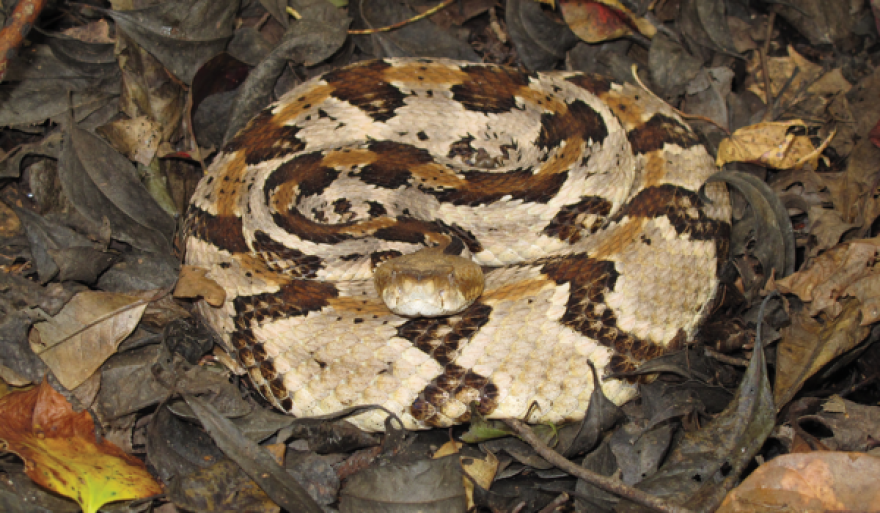There are 32 species of snakes in Virginia – only three of them venomous, but people tend to fear or dislike all of them according to state herpetologist J.D. Kloepfer.
“There’s just been a lot of vilification of snakes in the media," he explains. "It goes back to Biblical times so to speak. The whole Garden of Eden didn’t help out.”
When dealing with timber rattlesnakes, water moccasins (also known as cotton mouths) and copperheads, Kloepfer offers some fool proof advice.
“There are four simple words that can resolve almost 99.9% of interactions: Just leave them alone.”
He says snakes are not aggressive with people, and they help us by consuming rodents and ticks that live on them. At the Wildlife Center of Virginia, Connor Gillespie says snake bites usually happen by accident.

“If you’re going out on a hike, just be careful about where you’re stepping. If you see a log or a leaf pile, step over it and not on it, because is there is a snake resting under it, and you’re about to step on it, they’ll bite to try to defend themselves.”
If you are bitten, he says, check with the nearest hospital. Many stock anti-venom that can prevent the serious complications of a snake bite. And if there’s an unwanted snake around your house, don’t kill it. That’s illegal.
“We do get a lot of calls about snakes. They call us and say, ‘I found this snake in my home. Can you identify it?’ And then they send us a photo of a snake they had killed, which is really sad to us, because had they let that snake alone and called us first, we could have told them how to safely get that snake out of their home without harming them.”
Gillespie says snake bites are actually rare in the Commonwealth, sometimes caused by people trying to handle the animals.
This report, provided by Virginia Public Radio, was made possible with support from the Virginia Education Association.


